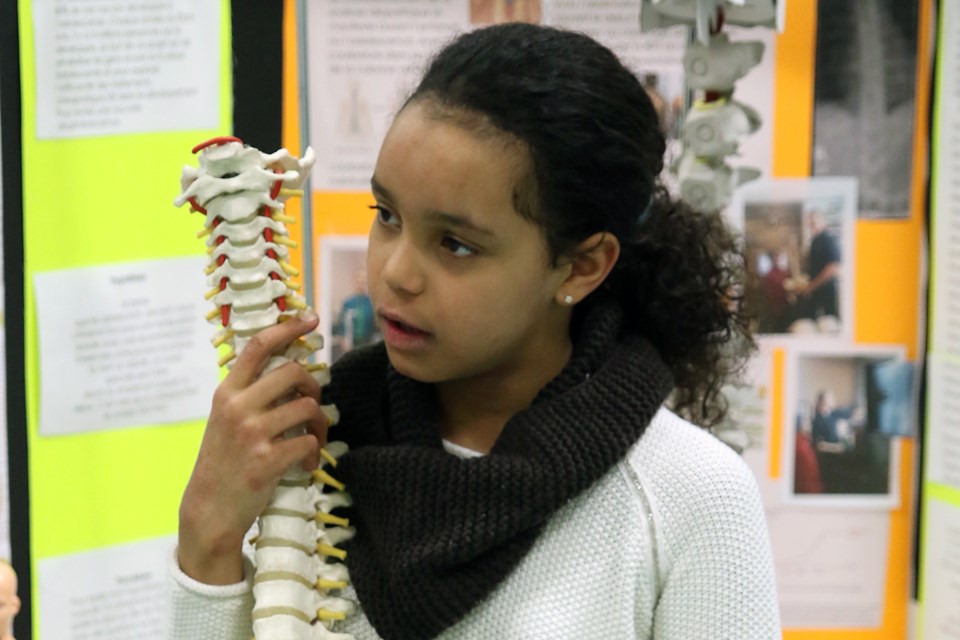THUNDER BAY – Tanika Payne wants to be a surgeon when she grows up.
At nine, she’s already showing why she’ll probably succeed.
A Grade 4 student at Ecole Catholique Franco Superieur, the youngster on Friday was one of 23 students taking part in the Thunder Bay school’s annual science fair.
Tanika chose a subject near and dear to her heart, scoliosis.
Diagnosed with a mild case at seven, she wanted to learn what the best course of treatment might be.
“I did lots of research and I got really interested in it. When I heard there was a science fair, I thought I could use all the information I had,” she said.
“My hypothesis was that if you’re an adolescent you can go to the chiropractor and he can do some movement with your back. Or you could just do some exercises at home. I thought if you’re an adult and you don’t have a really big degree (of scoliosis), then you could do years of trying to get it back to normal or you could get a brace or do surgery.”
Science is the basis of life on the planet Earth, she said, explaining why she likes it so much.
“The Big Bang is mostly about science, so I guess the world is made out of science and that’s why I got really interested in it.”
Fellow Grade 4 student Caleb Blain also took a chapter from his personal life to devise his project, trying to determine which sugary drink is the worst for people’s teeth.
“My dad drinks a lot of pop, so I wanted to know what happens to his teeth.”
According to his research, in which he submerged eggs into different liquids, Gatorade was actually worse for people’s teeth than pop. He initially thought it would be Pepsi.
“I really wanted to know. It was bugging me,” he said.
Teacher Christian Caron said the science fair is open to all students in Grades 4 to 6, with 11 spots available for the regional science fair next month at Lakehead University.
The process is quite educational, he said.
“They’re learning a lot. They’re learning about science, they’re learning how to research and also there’s a part where they work together with the parents, so that gathers the parents to help out the kids,” Caron said. “Overall it’s a win-win situation there.”
Students were free to choose their own topics and hypotheses. Other topics being explored on Friday included the effect of dish detergent cleaning up oil spills and the reason salt is used in the ice-cream making process.
